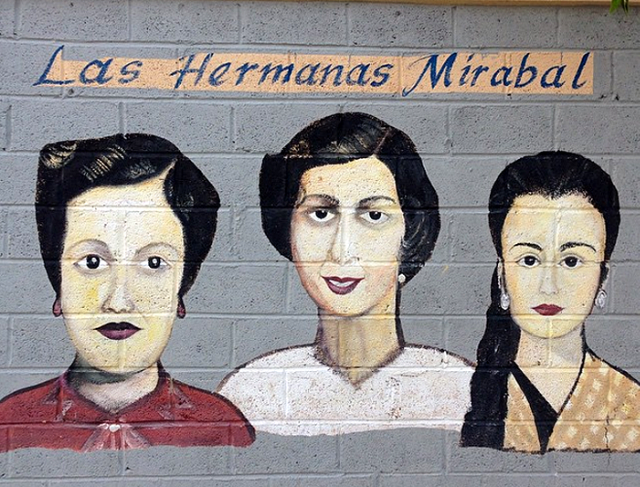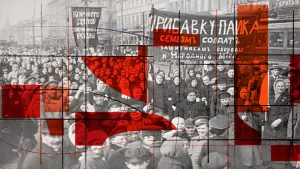Image from Vibe
36 years ago, at the First Latin American and Caribbean Feminist Conference, November 25 was established as the International Day For The Elimination of Violence Against Women. Around the world, this day is marked by marches, protests, and artistic expressions against gendered violence. As the U.S. is rocked by the revelations of thousands of women who have come forward to denounce sexual assault and violence in the #MeToo movement, this day has increased in importance as a reminder of the state of women’s rights.
The date of November 25 was chosen due to the 1960 assassination of the Mirabal sisters in the Dominican Republic. Known as “The Butterflies” (Las Mariposas), Patria, María Teresa, and Minerva fought against the U.S.-backed dictatorship of Rafael Leónidas Trujillo in the Dominican Republic between 1930 and 1961.
The Trujillo Dictatorship
The 31 years of Trujillo’s cruel iron-fisted rule, which begun in 1930, were characterized by the severe repression of labor and student movements, as well as leftists, feminists, and anyone viewed as his opponent or dissident. Trujillo ruled with an absolute lack of democratic freedoms.
His regime brought about the death of more than 50,000 people. Haitians in the Dominican Republic were specific targets. In October 1937, Trujillo organized the “Parsley Massacre” of Haitians at the border. While the final death toll is unknown, it could be up to 30,000 over the course of a week.
By 1960, several Latin American countries experienced resounding political changes. The dictatorships of Rojas Pinalla in Colombia and Pérez Jiménez in Venezuela collapsed. In 1959, the Cuban dictator Fulgencio Batista fled his country because of the triumph of Fidel Castro’s revolution. Change was in the air.
In the Dominican Republic, a covert insurgency organized against Trujillo’s dictatorship.
The Mirabal Sisters
With the idea of defending democracy and freedom, the Mirabal sisters joined the political group “June 14” in in honor of the dissidents that were tortured and killed 14 June, 1959. Patria, Minerva and Maria Teresa helped distribute pamphlets about the Trujillo’s many crimes, and sought guns and materials for bombs with the goal of organizing an armed revolt. They were discovered, and Patria’s house was burned to the ground.
In 1960, they and the June 14 group bore the brunt of political repression and Trujillo’s campaign of terror. The Mirabal sisters were detained on several occasions, tortured in clandestine sites, and sexually assaulted by Trujillo’s soldiers.
On November 25, 1960, after the Mirabal sisters were released from prison, their car was stopped on the highway. The three sisters and the driver were brutally beaten to death, and the car was pushed into a ravine to simulate an accident.
The sisters’ murder sparked strong indignation among Dominicans and increased demonstrations of opposition. The Mirabal sisters became a symbol of struggle against the dictatorship. In 1961, Trujillo was killed and efforts by the family to maintain political control of the Dominican Republic failed.
The following year, the perpetrators of the crime against the Mirabal family received 30 years in prison, a sentence they did not serve. With the help of military groups loyal to the Dominican president, they managed to escape from prison and from the country.
International Day for the Elimination of Violence
In 1981, the first Latin American and Caribbean Feminist Conference was held in Bogotá, Colombia. There, November 25 was established as the International Day for the Elimination of Violence against Women, which pays homage the Mirabal sisters who are an example of organizing against oppression. Years later, in 1999, the General Assembly of the United Nations voted for November 25 to be recognized as the day of the Elimination of Violence against Women.
The Mirabal sisters are honored because they stood up against the oppression of the state. Ostensibly, this is different from the kind of violence that most women suffer– often at the hands of boyfriends and husbands. However, the massive #NiUnaMenos marches point out, the state bears much of responsibility for violence against women; the state is responsible for holding up patriarchy. It is responsible for the lack of domestic violence shelters and other resources for women who experience violence; it is responsible for the low wages that keep women economically dependent on men; it is responsible for enforcing and perpetuating sexist elements in society. Furthermore, politicians perpetrate sexual assault against women. And yet, when women come forward, state institutions shame and discredit their stories. In this context, thousands of people around the world are rising up to demand an end to violence against women.As the daughter of one of the murdered Mirabal sisters wrote, “If they kill me I shall reach my arms out of the grave and I shall be stronger.” Today, we must all join the international fight against gender violence in honor of the legacy of The Butterflies.











